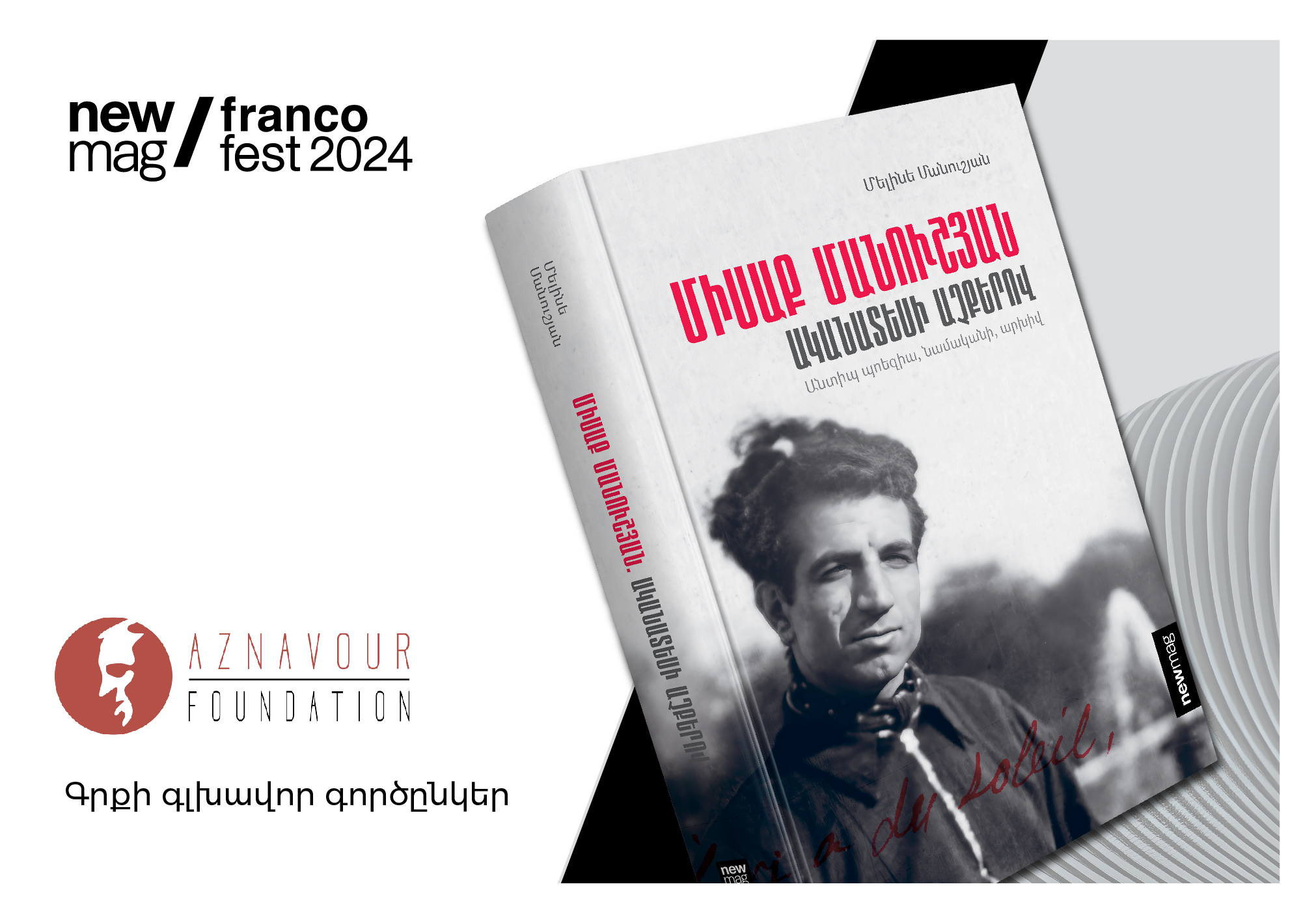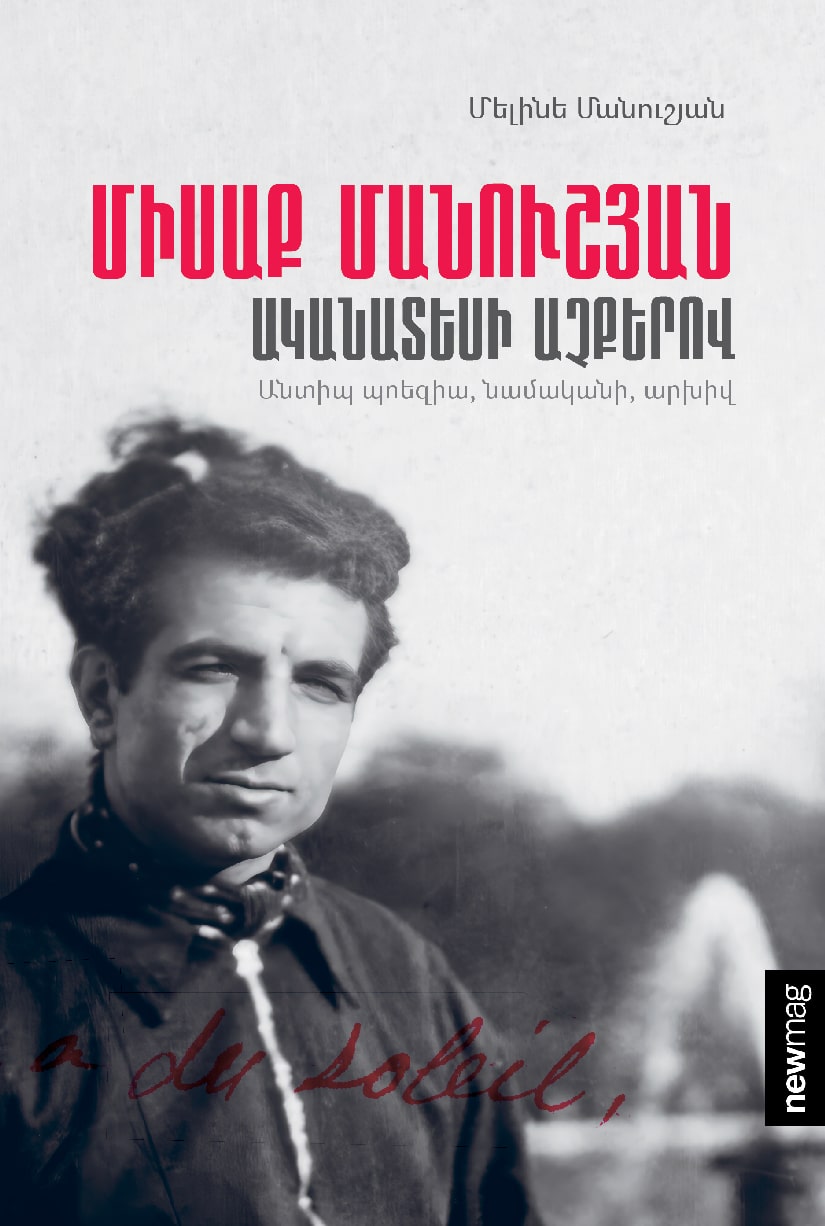Meline Manouchian's "Missak Manouchian: Through the Eyes of an Eyewitness" will be presented at FrancoFest 2024 (trailer)
10/09/2024

Newmag has translated and published the memoir of Missak Manouchian's wife, Meline, into Armenian, featuring deeply personal testimonies. The book’s general partner is the Aznavour Foundation.
Poet and translator Mark Deleuze recorded Meline’s memoirs about
Missak Manouchian half a century ago. They first met at her apartment in the
9th arrondissement of Paris.
Meline's memoirs about Missak were originally published more
than 50 years ago under the title "Manoushian." The newly republished
edition by newmag includes new documents, facts, and discoveries about this
Armenian national hero of France.
The book details how Missak Manouchian became a key figure in
the resistance movement. This historical, investigative, and journalistic
memoir narrates the lives of Missak and Meline during their time.
A freedom fighter with the spirit of a poet, Missak was one of
the leaders of the French anti-fascist resistance during World War II. He
survived the Genocide, arrived in France with his brother, and grew up in an
orphanage. Missak Manouchian worked as a carpenter at the Citroën factory and
later became a writer, founding magazines and penning articles.
In 1935, Missak met his future wife, Meline, who also survived
the Genocide and was an orphan. Both were active members of the anti-fascist
French Resistance Movement, as well as the French Communist Party and the
Immigrant Labor Force.
Manouchian led a group of foreigners living in France within the
underground "French Riflemen and Partisans" movement. He was arrested
multiple times but escaped from prison and continued his fight. To discredit
and disrupt them, the fascists printed the infamous "Red Poster,"
with 15,000 copies emphasizing that Manouchian and his group were foreigners.
On November 16, 1943, the French police arrested members of the
Manouchian group. Meline managed to escape but was sentenced to death in
absentia. On February 21, 1944, Manouchiann and 23 of his teammates were
executed at Fort Mont-Valérien in the suburbs of Paris.
After the war, Meline fulfilled Missak's last wish by moving to
Soviet Armenia. However, the Soviet government confined her to a small
apartment in Yerevan, separating her from her family waiting for her in Paris.
Thirty years after Missak's death, Meline gathered all her
memories and sorrows, which she poured into this book. In 2024, 35 years after
Meline's death, her remains were reinterred alongside Missak at the Panthéon in
Paris.
The presentation of "Missak Manouchian: Through the Eyes of
an Eyewitness" will occur at FrancoFest2024 on October 12 at 4:00 PM. The
book will be available for purchase at a discount that day.

Meline Manouchian
7800 ֏
Description
On February 21, 1944, the Nazis shot 22 members of the French Resistance in the Mont Valerien castle, not far from Paris. They remained in history as "Manouchian's group". This memoir of Misak Manouchian's wife and friend of the struggle, Meline, is a very personal testimony. Many events and details described in the book could not be told by anyone else with such accuracy and sensitivity. The book contains documents and letters (some never published), which help to see Manouchian in a new light. The hero of the resistance movement dreamed of remaining a poet and living with art and music. The group led by Misak Manouchian stood out for its actions in 1941-1943: murders of high-ranking Nazis, sabotage, disruption of trains transporting weapons and ammunition, failures of German military facilities. The book helps to imagine the "Armenian resistance" within the French movement, its roots, psychological and human characteristics. Meline and Misak, two orphans who survived the Genocide, along with many other Armenians, intellectuals, artists, who took refuge in France from all over the world, participated in the resistance of the country that gave them shelter and waged their struggle against evil and for dignity.
Read also

Winterfest to feature David Georgyan’s sci-fi action novel Impedance (trailer)

At Winterfest 2026, Newmag will present Marianna Hakobyan’s “Don’t Change the Names” (trailer)

Closing and Award Ceremony of the “Sprout in Armenian – 2025” Competition at Newmag Winterfest

“I hope my story will inspire many and help them keep believing and dreaming.” Henrikh Mkhitaryan’s welcoming speech to Armenian fans (video)

